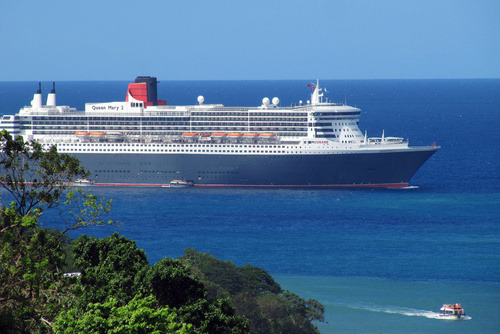Hermitage Queen Mary

Three weeks ago, I was able to participate at the leadership summit of Willow Creek in Germany. Willow USA and Germany hosted a large conference with 8000 leaders in Leipzig, Germany. In the last years Willow emerged to an important inspiration for a lot of German Churches. Many pastors joined the conferences, bought books by Bill Hybels and used Willow material, for their ministry. Willow is still the most important example for attritional work in churches in my country. Many pastors dream, that the experiences of a church close to Chicago could also have an impact on their work here. In two years Willow Creek will also host a large conference in my hometown Hannover. I am exited about the impact this will have in my synod.
Amongst the different speakers at the conference in Leipzig, the senior pastor of Willow Creek Coomunity Church, Barrington, USA, Bill Hybels was also lecturing. He gave the into keynote with the title “If church is church”
Amongst other topics, Bill Hybels talked about the need to spend time with God. He mentioned, that he also saves special times for retreats and solitude. He said, that he spends one week a year in silence and prayer and that this is an important tradition to him.
I was fascinated and imagined Hybels in a monastery, in the nature or in a retreat with a spiritual mentor. But then he went on with the story and explained that he always spends his silent days on the cruise ship Queen Mary. (It seems he told the story more than once).

I don’t know, what disturbed me the most: The fact, that Hybels values a cruise ship as the ideal place to encounter God (Although I don’t want to judge it and I am positive, one can also spend time with God on a posh liner in the Caribbean) or the fact that he proclaims it in a surrounding, where most of his listeners won’t be able to spend one single night on a boat like this (but afforded hotel, journey and 200€ for conference tickets, excluding coffee or snacks just to listen to Hybels thoughts).
This week I read “Isolation – A Place of Transformation in the Life of A Leader” by Shelley Trebesch. After defining isolation and providing a glance of isolation examples in the Old and New Testament, Trebesch enfolds two different experiences of isolation: voluntary and involuntary. She tries to analyze the processes in isolation experiences and wants to make them fruitful. As results she mentions inward transformation, spiritual transformation and ministerial transformation.
Trebesch states, that (involuntary) experiences of isolation happen to everyone. And we can try to be prepare, to be braces, when they occur. This can be trained to through healthy ways of spending time in isolation voluntary.
For some this might be wilderness or desert (like it is presented in the bible as synonyms for uncultivated and uninhabited areas) for others the Queen Mary. Again: I don’t want to judge his hermitage. A pastor of mega church might need other places for retreats and in our relation ship with God, we are all different. I am only questioning the way, Hybels used his posh and luxerious spiritual life as an example or standard for others to copy. If God calls us into the desert, not all might think of the Queen Mary as an ideal heritage first.
For Bill Hybels next keynote, I would love to hear his from his struggles, short comings and (involuntary) isolation experiences. He has a lot of inspirational story’s to share. Like Willow creeks Reveal study, which was started 2004 to research the connection between church attendance and spiritual growth.
I would appreciate, if a wise leader like Bill Hybels could also share his broad isolation experience, instead of romantizing it as a cruise trip with the Queen Mary.
What are your isolation experiences? (Involuntary and voluntary?)
How do you share those experiences?
Leave a Reply
You must be logged in to post a comment.